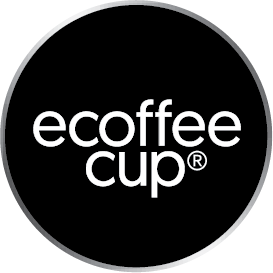University campuses are hubs of activity, with thousands of students, staff, and visitors relying on coffee and other beverages to fuel their daily routines. However, the environmental and financial costs associated with single-use cups present a growing challenge. Implementing a reusable cup scheme offers significant advantages, including reduced carbon emissions, cost savings and waste minimisation.
One of the most pressing environmental concerns related to single-use cups is their contribution to carbon emissions. The production, transportation, and disposal of disposable cups generate significant CO2 output. By introducing a reusable cup scheme, universities can dramatically lower their carbon footprint. According to Ecoffee Cup, their deposit return systems (DRS) have already saved over 10 million single-use cups through collaborations with businesses like Boston Tea Party Cafes, Monmouth Coffee and easyJet, with each saving over 1 million single-use cups individually.
Cutting Waste Collection and Disposal Costs
Single-use cups often end up in landfills or as litter, adding to waste collection and disposal costs. Universities typically handle vast amounts of waste daily, and disposable cups are a major contributor. A well-managed reusable cup scheme minimises waste, reducing the burden on campus waste management services and lowering associated costs. For example, Bath University in the UK successfully implemented a reusable cup scheme, leading to a significant reduction in waste generation and disposal costs.
Saving on Single-Use Cup Inventory Costs
Disposable cups come at a financial cost. Typically, universities pay between 13p and 20p per single-use cup. With an average of 800–1000 vends per day on a campus with 15,000 students, the cost of purchasing these cups quickly adds up. Implementing a reusable cup scheme eliminates the recurring expense of single-use cups, leading to long-term savings.
The Deposit Return System (DRS) Model
A key strategy for ensuring the success of a reusable cup initiative is a deposit return system (DRS). Under this model, students pay a small deposit (typically between £2 and £5) for a reusable cup, such as an Ecoffee Cup. When they return their cup, they receive a fresh, sanitised one in exchange. This system ensures continued use and convenience, while also encouraging a shift away from disposable options. Ecoffee Cup operates full-service DRS programs for members of The University Caterers Organisation, streamlining the process for institutions.
Engaging Students and Driving Behavioural Change
While the financial and environmental benefits of a reusable cup scheme are clear, maintaining student engagement is crucial for long-term success. Universities must actively promote sustainability through education, incentives, and communication campaigns. Providing clear signage, digital reminders, and small rewards for participation can help sustain enthusiasm. Encouraging students to make sustainable choices is not just about offering alternatives but also about fostering a culture of responsibility and environmental stewardship.
Taking the first step
Introducing a reusable cup scheme on university campuses presents a win-win opportunity—reducing carbon emissions, cutting waste disposal costs and generating overall financial savings. By adopting a deposit return system and maintaining strong student engagement, universities can create lasting change while leading the way in sustainability. With successful examples like Bath University and Ecoffee Cup’s widespread impact, the transition to a more sustainable coffee culture is within reach for higher education institutions worldwide. For more information about our approach contact us sales@ecoffeecup.com.



